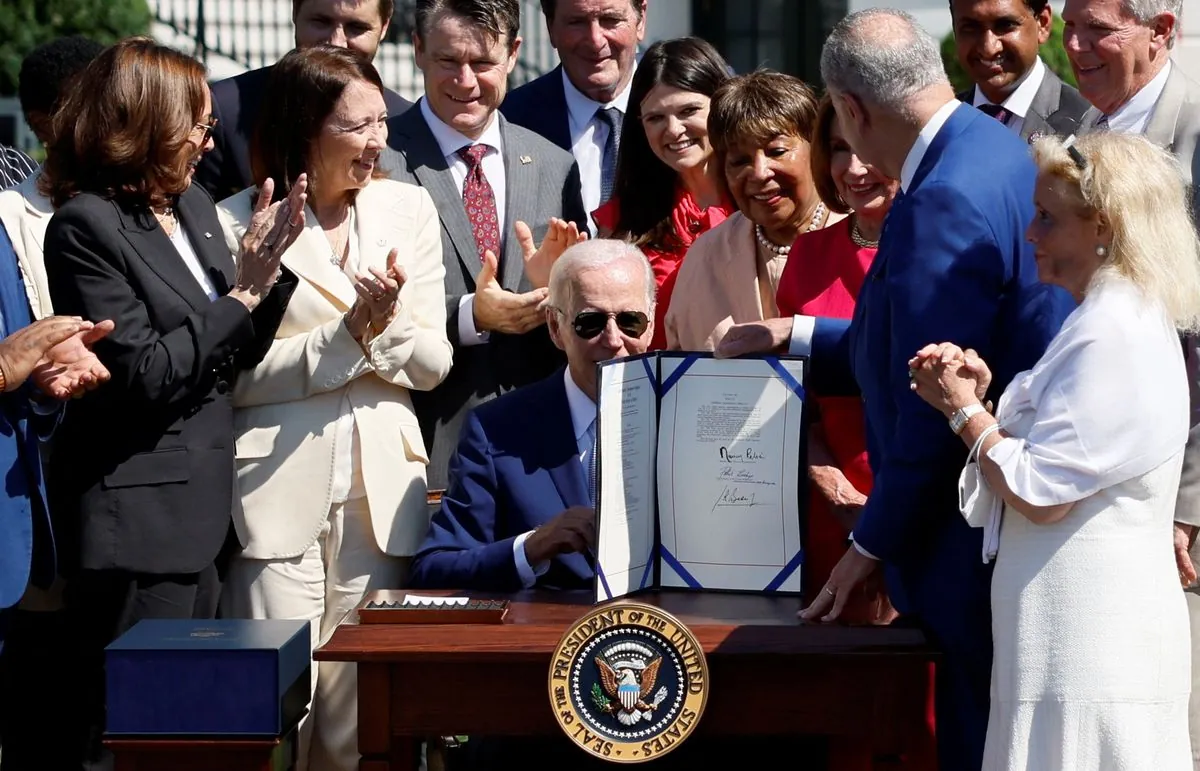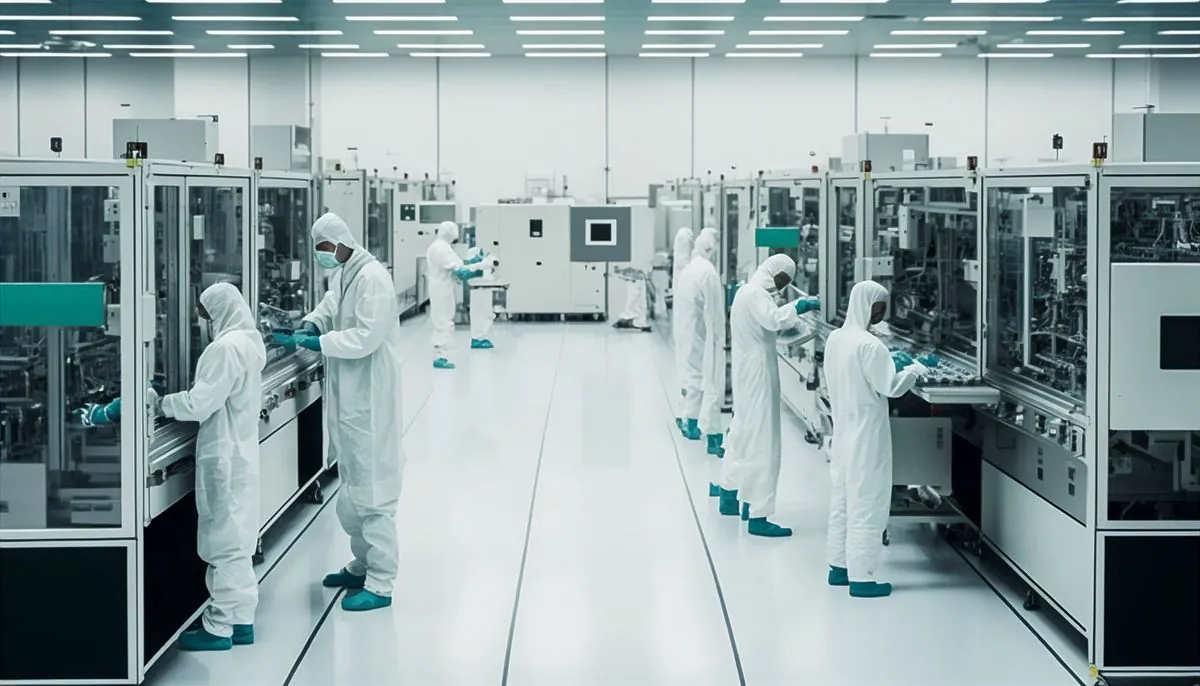Biden Signs Law Exempting Subsidized Chip Makers from New Environmental Reviews
President Biden approves legislation exempting subsidized U.S. semiconductor facilities from additional environmental scrutiny. The move aims to expedite projects under the $52.7 billion chip manufacturing program.

One year ago, on October 4, 2023, President Joe Biden signed legislation exempting certain U.S. semiconductor manufacturing facilities from new federal environmental reviews. This move affects facilities receiving government subsidies under the $52.7 billion semiconductor chips manufacturing and research program.
The semiconductor industry, which began in the 1940s and 1950s, has become a cornerstone of modern technology. Jack Kilby's invention of the first integrated circuit in 1958 paved the way for the digital revolution we experience today. The global semiconductor market, valued at over $500 billion in 2021, plays a crucial role in various sectors, from smartphones to artificial intelligence.
This legislative action aims to streamline the approval process for semiconductor projects, which already undergo federal, state, and local environmental regulations and permitting requirements. Without this exemption, these projects could have faced additional environmental reviews under a federal law, potentially delaying progress for years.

The U.S. government's focus on bolstering domestic semiconductor production comes at a critical time. The nation's share of global semiconductor manufacturing capacity has declined from 37% in 1990 to 12% in 2020. This decline, coupled with recent global chip shortages exacerbated by the COVID-19 pandemic, has highlighted the importance of a robust domestic semiconductor industry.
Environmental concerns remain a significant aspect of semiconductor manufacturing. The industry faces challenges in reducing its carbon footprint, managing water usage, and handling chemical waste. However, the new legislation seeks to balance these concerns with the urgent need to enhance U.S. competitiveness in this critical sector.
The semiconductor industry's cyclical nature and capital-intensive requirements make government support crucial. New semiconductor fabrication facilities, or "fabs," can cost billions of dollars to construct. The $52.7 billion program aims to reinvigorate U.S. chip manufacturing capabilities and reduce dependence on foreign suppliers.
As the industry evolves, new technologies like extreme ultraviolet (EUV) lithography are pushing the boundaries of chip manufacturing. These advancements are essential for maintaining Moore's Law, which has driven progress in the semiconductor industry since 1965.
The U.S. government's identification of semiconductors as critical to national security underscores the strategic importance of this legislation. By expediting the development of domestic semiconductor manufacturing capabilities, the U.S. aims to strengthen its position in a market dominated by companies like Taiwan Semiconductor Manufacturing Company (TSMC).
Looking ahead, the semiconductor industry faces both challenges and opportunities. The potential of quantum computing to revolutionize the field and the increasing role of semiconductors in emerging technologies like artificial intelligence and machine learning highlight the industry's ongoing importance.
This legislative action represents a significant step in the U.S. government's efforts to revitalize domestic semiconductor production, balancing economic, technological, and national security interests with environmental considerations.


































